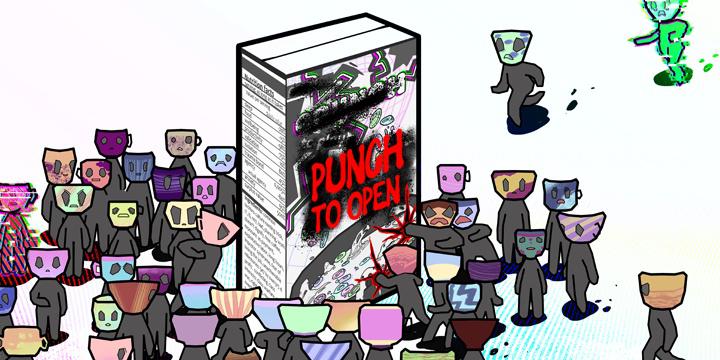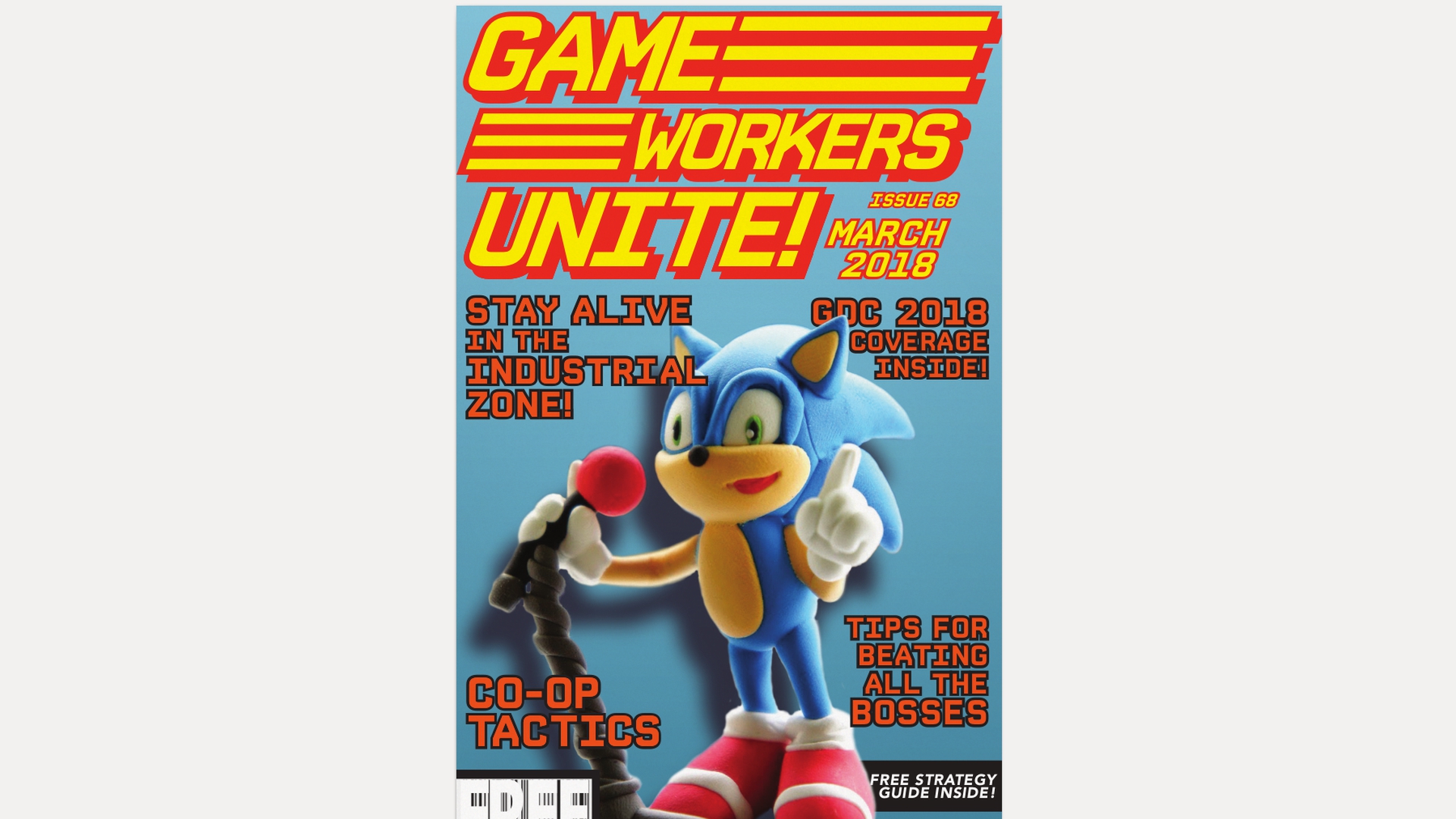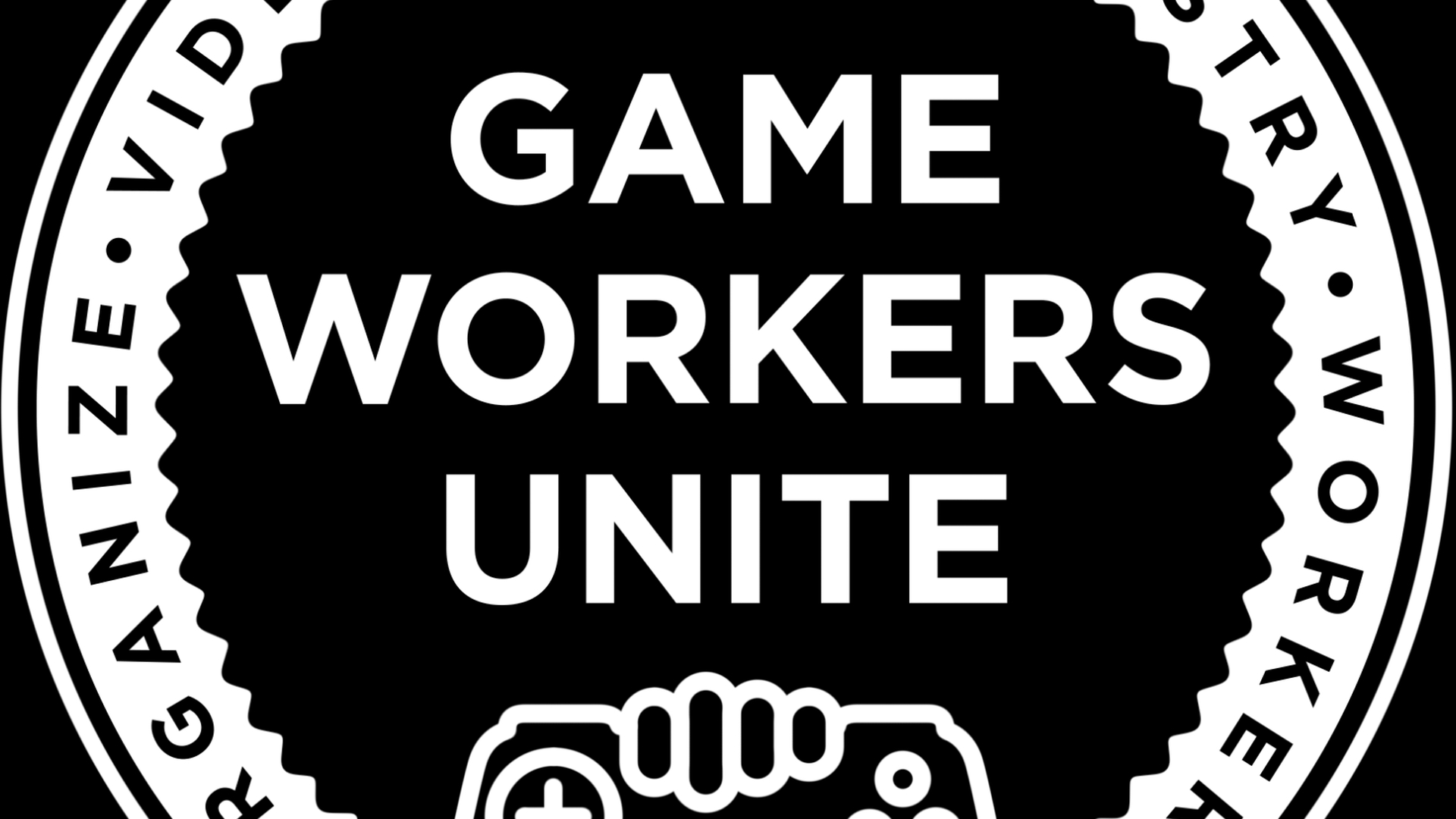How to Eliminate Crunch in the Games Industry

inquiry
How to Eliminate Crunch in the Games Industry
by
Austin Kelmore
/
April 13, 2021
Strategies for organising against overwork
Notes from Below has republished the following piece, originally featured here.
Content warnings: excessive overtime, systemic racism and sexism
Estimated reading time: 18 minutes
Every couple of months the games industry has conversations about crunch and how it impacts us, yet it feels like we aren’t much closer to ending the practice than we were 20 years ago. People are still regularly working over 60 hours a week and are often unpaid for doing so.
I’ve experienced the 80+ hour weeks for months on end, I’ve voluntarily worked extra hours because I felt like it, and I’ve refused to work overtime at different points of the 13 years I’ve been in this industry. After all those years, I believe that we would make better games and lead happier lives if none of us had to crunch and I’ve spent a lot of time thinking about how we can make that a reality.
In this essay, I’m going to dig into the incentives for why we crunch and then propose concrete steps for the industry to move away from it. I don’t have all the answers, but I hope this essay is a launching pad that takes us one big step closer to understanding how we can eliminate it from the games industry.
What is Crunch?
Crunch is usually used to indicate a prolonged period of overtime measured in weeks, months, or sometimes even years. It can also pertain to the intensity of the work due to stress or deadlines. I don’t think there’s a standard definition of crunch because the meaning of the word is unique to each person’s perception of how bad their working conditions have become.
Because crunch has no agreed upon definition, when people talk about eliminating it we often get stuck on trying to define what crunch is and never get to the part where we decide on concrete actions to stop it!
So from now on, I’m going to refrain from using the word crunch due to its ambiguity. I believe crunch is a weasel word used in place of ‘overtime’ to hide the true nature of what’s happening. Instead of talking about how we can end crunch, I’m going to chart a path for how we end all overtime, which in turn will also get rid of crunch in our industry.
Overtime is typically defined as any work done outside of the standard work week, which for most people in the games industry is anything above 35-40 hours a week depending on the contract. So to end all overtime, we have to get to a place where no one works above 40 hours a week.
While it may seem impossible, I think it’s well within our power to do it. However, before we can talk about steps to end overtime, we have to talk about why we want to abolish it, understand the incentives that exist to push people to work extra hours, and how it’s a systemic issue that affects the entire industry. Once we have that framework of understanding, I’ll then talk about concrete steps that people can take to eliminate crunch and overtime from our industry.

Start With the Why
In 1817, Robert Owen coined the phrase, “Eight hours’ labour, Eight hours’ recreation, Eight hours’ rest”. Over two hundred years later, we still don’t have that in the games industry.
One of the biggest reasons to end all overtime is so that workers can have lives outside of work. Taking care of family, working on a side project, reading, fighting for justice, or doing nothing at all are only possible if people aren’t working. When employers force overtime or create a culture in which people feel the need to work extra hours, they rob people of their free time to do whatever they wish.
When taken to the extreme, constant overtime causes burnout, which is incredibly detrimental to peoples’ lives. It causes physical and psychological issues like Trauma Bonding that can take months if not years to recover from. I’ve burned out multiple times because of overworking and had one instance so bad that I wasn’t able to do much of anything for a whole year.
Company owners and executives often encourage workers with words like “passion”, “family”, and “in it together” to work those extra hours, but who really benefits the most if the games and companies do well? Who gets rich if a company is sold and who gets let go if a game doesn’t succeed? Who is able to cope with these kinds of working conditions and who is pushed out?
Two of the games industry’s largest censuses, the 2019 IGDA Developer Satisfaction Survey and Ukie’s 2020 UK Games Industry Census both say the US and UK games industries are: * Comprised of 70% men compared to 50% of the general population * Overrepresented by people identifying as white by 5-10% or more * Younger than the overall working population – e.g. 81% of UK game workers are 40 or younger
The statistics unfortunately don’t dig deeper into the specific demographics of executives and the people who own the companies. If the companies I know of are any indication, the people in power and the people who most benefit are even more predominantly white men with a few white women. Activision Blizzard, Ubisoft, Electronic Arts, Take 2 are all easy to find examples.
Overtime is a tool used by management to ensure those who are in power stay in power by extracting additional labor from workers so that they can’t use their time outside of work to compete with them. Even when workers start their own companies to get away from the poor working conditions, they often start exploiting their workers in the exact same manner that they were previously exploited.
It’s no surprise then, that the people who are most able to handle a working environment that demands all of their free time and doesn’t allow for outside commitments are those who are subsidized by their parent’s wealth or who have partners that handle the majority of cooking, cleaning, and taking care of the family at home.
The games industry actively pushes out people of color because they rarely have generational wealth and are more likely to be high-burden caregivers for their families. The industry also actively pushes out women because they more often handle caring responsibilities than men which means they are less able to work the excess hours on the job. For women of color, breaking into the industry and then staying once they’re here is enormously difficult.
These compounding issues are a barrier for Diversity, Equity, and Inclusion at our workplaces. Removing all overtime would take us one step closer to having an equitable industry where everyone is able to participate and have time for their lives outside of work.
Why Do We Work Overtime?
When I think of overtime in the games industry, I think of projects that blow past their deadlines and take longer to make than the company thinks it will. Cyberpunk 2077 and Red Dead Redemption 2 are two very public examples, but there are many, many projects that are in similar situations including most of the games I’ve worked on.
What’s interesting about teams missing deadlines and people working overtime to try to finish up the work is that overtime actually makes us less productive. This IGDA resource on crunch and overtime was made over 15 years ago, so this is not new information. Most companies, however, still incentivize overtime because of the mistaken belief that more work will get done.
Overtime is not a result of production issues or missed deadlines, however it is a mode of working that is often forced upon workers when those happen. Management could just as easily choose to change the scope of games or push back milestones instead of resorting to overtime.
Because companies want workers to work overtime, regardless of the effectiveness, they usually also reward the behavior. When executives and managers give promotions and raises, the people who work overtime are often seen as more invested in the company and therefore more deserving. This gives individual workers incentive to work overtime, even if they know it’s ineffective and will physically and psychologically harm them.
The flip side is also true - those who don’t work overtime are often seen as not invested in the company and unwilling to put in the time and energy to make it succeed, whether that’s true or not. So there is a dual incentive to work more hours than is standard - to be rewarded by the company with more money or promotions and also to not be laid off or fired and have income taken away.
For game workers just starting out in low paid jobs, it’s hard to say no to overtime. Workers who are paid hourly at the minimum wage or slightly above often need more income and an easy way to do that is to work extra hours. Companies incentivize overtime by intentionally paying workers under a living wage and forcing them to either struggle for money for food or rent or work overtime to barely get by. Executives know workers will be more willing to do the extra work because the workers’ families depend on that extra money.
On teams there is often a social pressure to work overtime. People spend a large portion of their lives at work and want to get along with their coworkers. It’s no surprise that many of us are close friends! If others on the team are working overtime, there’s a huge pressure to “help” by working alongside them. And while it’s nice to have friends around when going through difficult times, working the extra hours is often more about solidarity than effectiveness.
Individually, game workers are often passionate about the games we work on because we know how much games mean to people. We know this both personally through playing games ourselves and because we’ve had fans tell us incredibly heartwarming stories about how much they’ve enjoyed our work. So there is often an internal pressure to make the best game that we can because we want people to like them. There’s an additional incentive in that if the game is successful, then it will (hopefully) also be financially successful so that the team can keep their jobs and continue to make money.
These different incentives often mean workers feel forced to work overtime and all of these incentives make it so very hard to change the overtime culture as an individual.

A Systemic Issue
The games industry is made up of companies, companies are made up of locations and teams, and locations and teams are made up of individuals. The industry as a whole is known to work overtime, but beneath that, it can be incredibly varied.
A large company like Rockstar may be famous for the amount of overtime it does, but there may also be studios or teams that don’t work overtime there. Then again, on those teams that don’t work overtime as a whole, there may be individuals that willingly choose to. No two people’s experiences are the same.
On the whole, though, we’re known for how much overtime we work. There are many, many, many articles written about it, some going back fifteen years.
The months long overtime and the casual once a month of staying late all exist within the same industry and are related because people are incentivized to work extra hours. For companies that don’t currently work overtime, there are very likely workers that have experienced overtime culture elsewhere. Even companies that say they don’t work overtime will still usually reward their workers who choose to do so, which then creates a culture where it’s acceptable and expected to work extra hours even when the company states otherwise.
Almost every person in the industry has either experienced excessive amounts of overtime themselves or knows someone who has. Because of this, there’s the memory and knowledge of overtime as a practice and its existence inside teams that don’t work extra hours. And because most teams don’t explicitly ban overtime, this means that the incentives for it still exist.
If companies don’t explicitly disincentivize overtime, then they are implicitly incentivizing it because that is the games industry’s default culture. This also explains why it’s impossible for one person to change the industry’s practices. Workers can leave a company that has a lot of overtime, but it’s very likely the next company will also have the same issue.
To change the industry, we have to change how the vast majority of the companies work.
The Impact of Choosing Overtime
I want to take a short digression here to mention a small, but vocal minority of people who say they want to be able to work overtime. Sometimes they’re workers who need more money for basic necessities like food, rent, and taking care of their family. For those workers, it’s more of a necessity imposed upon them by their employer not paying a living wage and something that we should be aware of when telling people not to work overtime.
However, I’ve heard other workers say that because they don’t personally feel coerced to work extra hours, they should be allowed to work them. They say they like doing the work, don’t have anything else to do at home, or something similar. And because they feel the work they’re doing is optional, they don’t want others to feel like they also need to work overtime.
I get why people want to believe that they can make personal choices and not have them affect others, but this is a classic case of intent versus impact. It doesn’t matter if someone choosing to work overtime doesn’t want to perpetuate a culture of overtime at a workplace or in the industry, they are doing it by participating in it. Others will see their actions and think that’s the norm even if they say otherwise while doing it. People will often attribute any success to the method in which it was created, which will include the overtime.
So for those in the games industry - if you tell others to not work overtime, but do it yourself, what behavior do you think you’re modeling?

Taking a Step Together
We will never make the games industry equitable for all while a pervasive culture of overtime exists because it inherently benefits those who have privilege and power. One person alone can’t banish overtime from the industry, but they can reinforce its existence by choosing to work the extra hours. So we’ll have to change this culture together.
This means that if you’re in the games industry, you have to be an active participant in dismantling systemic overtime. It won’t ever go away without your help. That might sound like a lot of weight and pressure, but you’re not alone. You’ll be pushing for a better industry with your coworkers, friends, and family. You’ll be part of the group that will change an entire industry.
Think about it for a moment. Imagine a world where there is zero overtime. Zero. People who have to manage emergencies are paid and scheduled to be on-call. Projects that run long are de-scoped or delayed. No after-hours emails or Slack messages to watch out for or respond to. Imagine how much more time everyone would have to be with their families, read books, play games, work out, and push for more social change.
This is within our grasp, I promise you. You, me, and many others can make overtime in the games industry a thing of the past. So how do we get rid of overtime in the games industry? There are two routes.
For Those at the Top
The first applies if you are a CEO or executive. Change everyone’s contract so they’re not allowed to work any overtime. Doing this sets a hard line for everyone to follow and also provides workers a way to push back if anyone ever asks them to do extra hours. Contracts are not a perfect solution because they’re difficult and time consuming to enforce when companies mistreat workers, but this is still a good step forward.
If you have any workers that were previously being paid for overtime, do an analysis to make sure they’re being paid a living wage without the overtime. One of the major reasons low paid workers feel they need to work overtime is the extra money their families depend on, so taking away the extra hours without changing their overall compensation could put workers in an even more precarious situation.
Lastly, go over all of the company’s policies and remove or change any of them that incentivize overtime. Changing people’s habits takes time, so be prepared to both model the behavior yourself and address any issues that come up.
I put this section here to give people at the top an easy path to end overtime, but truth be told, I don’t think many will take it. If they really wanted to, they would have done it already. If anyone reading this is a CEO or executive at a game company and wants to be spiteful and prove me wrong, I would love for that to happen. Please do.
A Path to Zero Overtime
I don’t believe we should wait for CEOs and executives to stop incentivizing overtime, we have to take this into our own hands. Before I dig in, however, I want you to do a thought exercise with me.
Imagine going to your boss and saying you don’t want to work any overtime. A bit scary, right?
Now imagine you and your teammates talked and all agreed you didn’t want to work overtime, then told your team leads all together. Is that maybe a little less scary? It’s easier to propose something like this if there’s a group of you that are willing to stand up for each other, right?
So what if you and all the other workers at your company signed a paper saying you never wanted to work overtime again. Does that feel exciting? Scary? Both?
Proposing something new can be hard, so keep in mind that you’re not in this alone, you’re with all the other people who also want to make overtime a thing of the past. If you’re nervous and are thinking of waiting until the people at the top change their mind, think of what Frederick Douglass once said: “Power concedes nothing without a demand. It never did and it never will.”
As workers, we can combine our collective power to demand an end to overtime forever because we ultimately control something people at the top want more than anything else - our labor. If we don’t agree with the conditions in which our labor is being performed, we have the power to withhold it. Alone we can be ignored, but together? Together we can stand side by side and force an entire industry to change.
I can’t see the future and I don’t think it’ll happen exactly like this, but if we decide to demand zero overtime, I can see many of these events coming true.
- Workers all across the industry start talking to their coworkers about zero overtime with some teams deciding they’d like to never work extra hours again.
- Workers at a small to medium sized company tell their CEO they don’t want to work overtime anymore.
- A public campaign ensues and gets a lot of press coverage.
- The small to medium sized company announces a short while later that they’re going to have zero overtime.
- This announcement emboldens other workers, so they start talking to their coworkers and push for change at their companies.
- More companies announce they’re going to have zero overtime, some even doing it before their workers demand it. These announcements get less and less press as it becomes normalized.
- Workers at a union introduce standard contract language for zero overtime and the companies that are transitioning to zero overtime use it.
- A sizable percentage (i.e. 30%) of small to mid-size companies are either transitioning to zero overtime or already there.
- After being pressured by its workers, the first large company decides to transition to zero overtime since it would be a competitive advantage for attracting talent over other large companies.
- New companies are being created that default to zero overtime and use the industry standard contract language that was developed by workers at unions.
- Workers at unions vote to adopt zero overtime as an industry standard policy that they will push for at their companies.
- Workers go on strike at companies that refuse to transition to zero overtime to force management to improve working conditions.
- The vast majority of game companies have zero overtime and the ones that employ overtime are thought of as “the old way of doing things”.
- University grads join the industry expecting companies to have zero overtime and avoid the ones that still allow it.
Why do I think this is possible? Because this is similar to how workers originally pushed for the eight hour workday.
This process of talking and coordinating with your fellow workers to create positive change in the team, company, and industry is commonly known as organizing. And in many countries, unions are the legal framework to protect workers who are organizing together. If you look at the history of the eight hour workday and five day working week, workers combining their power in unions were one of the major driving forces behind the movement.
Just five years ago there were only a couple of unions in the games industry, but nowadays there are quite a few. So if you’re in the US or Canada, UK, Ireland, France, Sweden, Korea, or Finland join up and ask to be connected with your coworkers who are also in the union. If you work in a country that doesn’t have a games union yet, build one with your fellow workers! Work together and figure out what steps make sense for you to get to zero hours.
We can change this industry, it’s within our power. Talk to your coworkers and come up with a plan, join a union, and be part of the movement to make zero overtime a reality. To change an entire industry, we need everyone, including you. We’ve got this, we just need to do the work.

Thank you Andie, Ashley, Jamie, Kevin, Liam, and Rahul - your feedback improved this essay so very much.
Art by Andie Sacchi
author
Austin Kelmore (@AustinKelmore)
Subscribe to Notes from Below
Subscribe now to Notes from Below, and get our print issues sent to your front door three times a year. For every subscriber, we’re also able to print a load of free copies to hand out in workplaces, neighbourhoods, prisons and picket lines. Can you subscribe now and support us in spreading Marxist ideas in the workplace?
Read next


